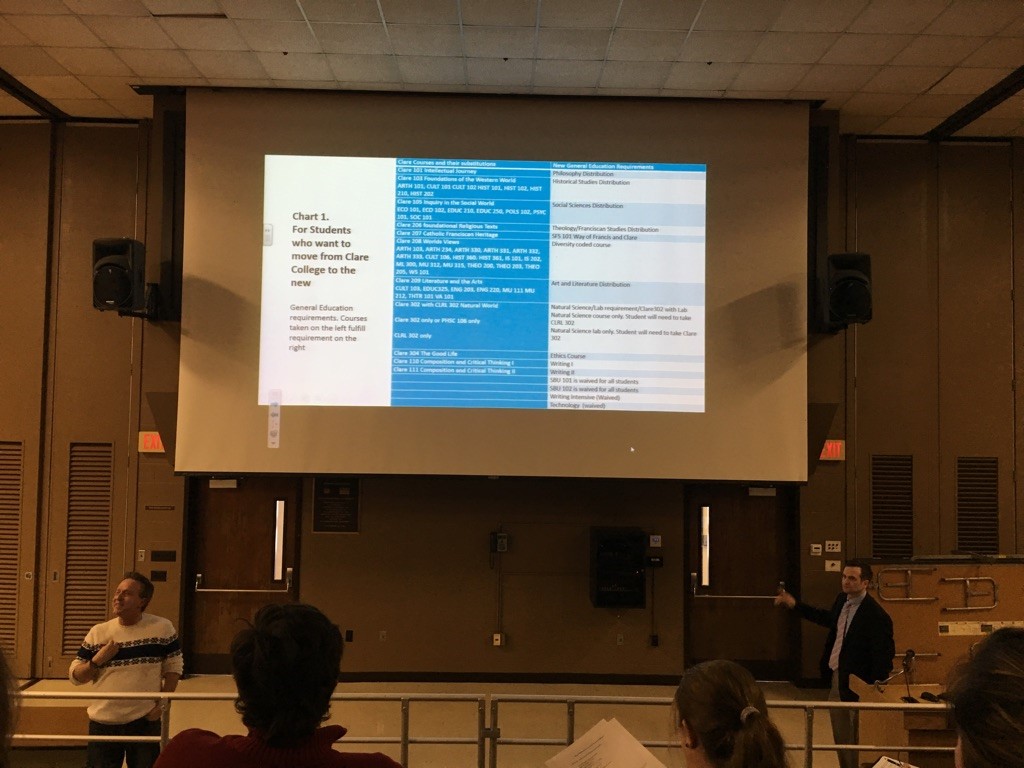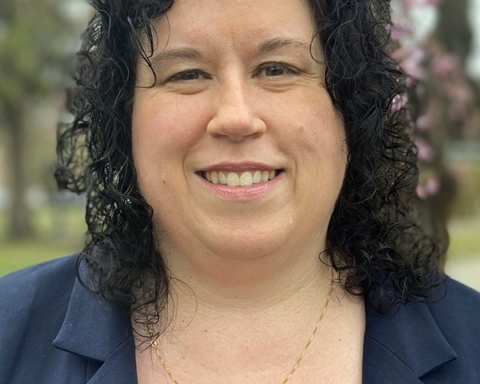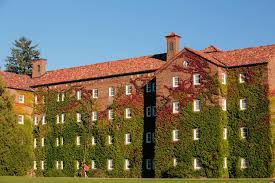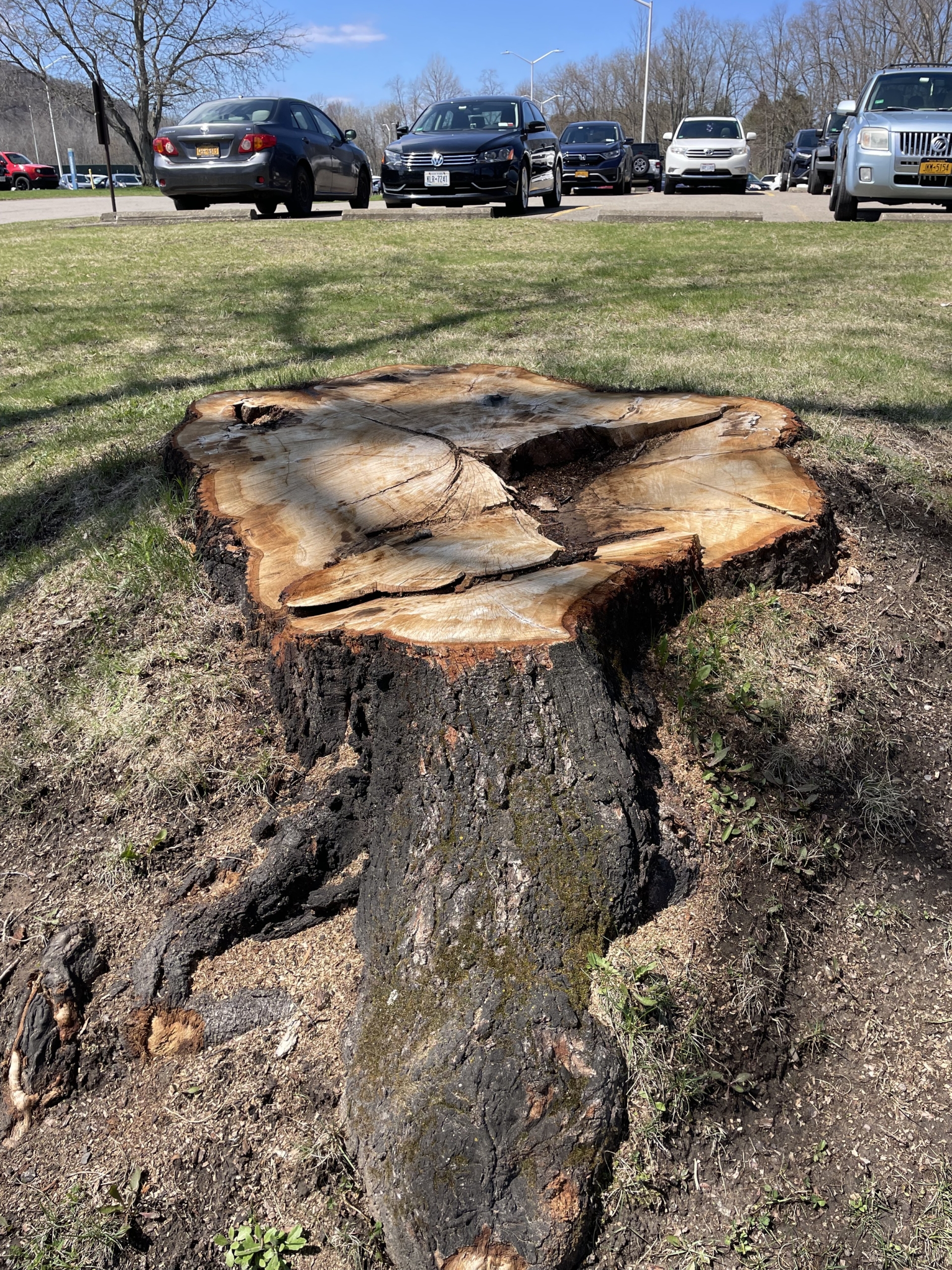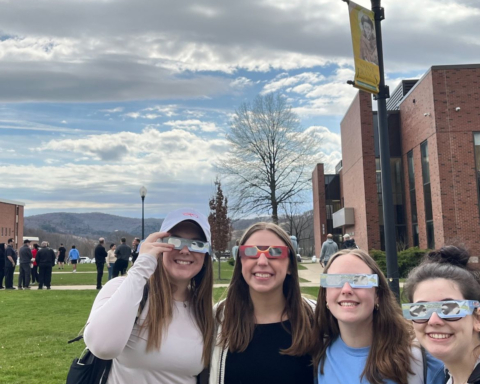Guy Imhoff, Ph.D., dean of Clare College, and David Hilmey, Ph.D., dean of arts & sciences, held two open sessions earlier this week and will hold one today to discuss the new general education curriculum and how it will affect student scheduling this upcoming summer and fall terms.
At Wednesday’s open session, approximately 25 faculty members and students gathered in the Murphy Auditorium to listen to the presentation.
Along with Imhoff and Hilmey, Phillip Payne, Ph.D., history department chair and professor, and George Swindoll, the university’s registrar, are in charge of rollout and administration of the new curriculum.
Hilmey started off by presenting an overview of the new curriculum, which is separated into four categories.
The first are called “required specific courses,” which will total 15 credit hours.
“These courses will be required of all incoming students in the fall,” said Hilmey.
Courses under this category include SBU 101, similar to the current introductory freshmen course, University 101; along with SBU 102, which is yet to be approved; The Way of Francis and Clare, an ethics course; and two three-credit writing courses.
“These courses will not be required for current sophomores, juniors, seniors or transfers who have taken similar courses,” said Hilmey. “They are more geared to first-year freshman students.”
The second category is based on seven different distributions. Students will have to complete a course in each distribution. These include historical studies, literature and arts, natural science with a lab, social science, philosophy, quantitative literacy and religious studies/Franciscan studies.
“The distribution lists are currently in the process of being approved, although some have already been approved,” said Hilmey. “It is a slow process and we are still waiting on the official course list.”
Hilmey said department chairs can propose courses that can be reviewed and approved by the senate to be on the distribution list.
For the third requirement, students must take a course designated as intensive writing and diversity.
“These are not necessarily stand-alone courses,” said Hilmey. “They can be built into the major or part of a distribution course.”
Hilmey said the idea of these courses is that they can also count for a course in another distribution or category.
The final component is technology competence, which is also not an actual course, but rather an addition to a course students will already be taking.
“This is also in the process of being developed, but it does not affect current students,” said Hilmey.
Hilmey said that all rising seniors must complete the Clare College curriculum, however rising sophomores and juniors will be moved to the new curriculum, unless they choose to opt out and complete Clare College.
Imhoff said that incoming freshman or transfers will not have the option to switch to Clare.
“The new general education curriculum will go along with Clare, as well as state requirements,” said Imhoff. “It is almost the same as Clare and it will be taught until the distribution lists for particular courses are approved.”
For current students who will be transitioning to the new general curriculum, some courses will be waived, said both Hilmey and Imhoff.
“We will not penalize any students,” said Hilmey. “No one will have to take extra courses or stay here longer than they have to.”
Despite some courses and aspects of the new curriculum that are yet to be finalized, Imhoff said students should not wait.
“Students should register regularly” said Imhoff. “We have a lot of choices for current students and many of the courses in the Clare curriculum are similar to those in the new general education curriculum.”
He said the upcoming two years will be a trial period for the new curriculum and ensures that students and faculty should not worry.
“We are going to try to make it an easy and smooth transition for everyone,” said Imhoff. “Whatever doesn’t work, we will figure out and make the changes that need to be made.”
engjg14@bonaventure.edu

